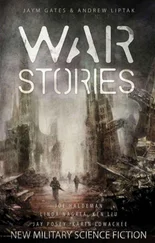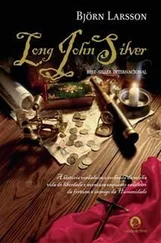When he came in for dinner, he told Casey and Carol, his friends, that he’d found a sure way to make a million bucks. “Uh-oh,” Casey said. “I hear next year’s bankruptcy talking.”
“Gimme a wad and I’ll make you rich in Hollywood,” Marcus said. He showed them the book, said, “Big biopic,” and they knew he was kidding. No more fortunes in the faded glamour of the Left. Too bad. They were all lawyers, and not of the high-revenue kind. Marcus did tenant law, and Casey and Carol (man and wife) worked in immigration law.
And maybe he didn’t want to share the book with the world. He was happy with it showing exclusively in the theater of his head. People wouldn’t get it, they’d laugh in the wrong spots. His ex-boyfriend had accused Marcus of thinking that about everything: that he was the only one who understood. Also of being withdrawn and emotionally stingy. Marcus was still furious at the injustice of that, which didn’t keep him from wanting Nico back.
Casey and Carol had been especially nice to him this weekend — sometimes too nice — to console him for Nico’s defection. Tonight they were barbecuing corn and beautifully marinated chicken and slices of watermelon, which they claimed was good grilled, to distract Marcus from his sorrow. He ate heartily but without what you would call feeling. They sat near the glow of the briquettes, swatting away mosquitoes and watching the fireflies, as darkness fell, and then he was glad to slip away to his room and go back inside Village Days and Nights .
He’d reached a point in the book where the narrator suspected his wife, Betsy, was sleeping with one of the men in the big group-apartment they shared on Greenwich Avenue. Was she fooling around with Richard (“a Jew from Cincinnati”—the author was not above bigotry) or with Joe (“bland and married and always a cipher”)? The author, in his suffering, resorted to taking his hard-to-please wife to a local speakeasy and staying out late, to avoid coming back to the apartment. His wife was lively there and showed enthusiasm for these nights out and he began to see some hope.
The flaw in this plan was that it was draining his meager budget. The author was a badly paid journalist for what now would be called the alternate press. He borrowed money from any friends he could, including Richard and Joe, his suspected cuckolders. And when he was down to nothing, the bar owner let him run a tab, for months and months. The narrator was not proud of this. “Money was its usual false friend to me. How gay my wife was, quaffing her cocktails and smiling at all and sundry.”
Marcus was always startled to read gay in its old meaning of carefree. This could only strike him with irony at the moment. “My darling Betsy was becoming something of a gold-digger,” the author wrote, “though she may not have known it herself. Gandhi said, ‘Earth provides enough to satisfy every man’s need, but not every man’s greed.’”
Gandhi? How did Gandhi get in there? Marcus was amused to think of the Mahatma hanging out in some saloon on Bleecker Street. In fact, he would have been getting ready to lead the great Salt March in India at the time. Marcus was a big Gandhi fan. Could the author have been reading him as early as that? Maybe. Marcus imagined the wounded young husband bolstered by the words of one skinny, bald, half-toothless guy from Gujarat who hadn’t had sex with his wife for decades (even then). It made him want to take up Gandhi again himself.
Marcus got up very early the next morning and actually checked the living room bookshelves for Gandhi. The Story of My Experiments with Truth , wasn’t that here somewhere? In between old Agatha Christie paperbacks and Steal This Book by Abbie Hoffman? It was not. Casey’s great-uncle had been a painter — the house was full of his splashy landscapes — but the remnants of everyone who’d been here were pretty random.
And now people were saying maybe Gandhi had been in love with a man, a Jewish architect in South Africa. Or at least vice versa. One or both of them had languished in the same sorrow Marcus was getting to know so well. Maybe. Marcus didn’t quite buy it. Gandhi had been so busy creating other forms of suffering for himself. Fasting beyond endurance, marching, getting jailed. With such fixity of purpose. But the Great Soul might have had room for everything.
In college, where Marcus was one of a very small group of African-American students, he’d been known as a really crappy athlete and a mediocre dancer. Casey, his roommate freshman year, liked to call him the Living Anti-Cliché. What he’d been good at was playing poker. He could keep numbers and visual stuff in his head. He might’ve become a banker, easily — Casey told him — if he’d had a completely different character. These days Marcus had to stop himself from playing games of solitaire over and over on his cell phone. Solitaire — talk about clichés of the lonely lover. No! He wasn’t doing that.
At breakfast, Casey said, “Wanna swim today? Swimming will do you good.”
Casey drove too sloppily on the curving mountain roads, and then they all had to clamber through brambles and probably poison ivy, but Marcus stopped being grouchy once they got down to the glinting creek. The place had a dappled stillness, even with clusters of shrieking, splashing kids. It was fringed with ferns and dark tiers of rocks, with an elegant little waterfall you could stand under. The water was deeper in one spot than Marcus had thought, and he entered the shocking coolness of it, paddling and kicking and darting in circles.
He was fine for the rest of the day too. Anyone seeing him, at the pizza place for lunch, at the farm stand buying corn, on the back road taking a little stroll with Casey and Carol, whom he loved, would have thought he was fine, and would not have guessed for a minute that part of him was wallowing in despair and was only waiting to be alone and get back to his book.
The book, which he managed to open before supper, had the narrator (someone named Norman F. Remsen, who had never become famous) going to consult his dear friend Dorothy Day. (Marcus knew who she was, though she was apparently unfamous at this point, way before she started the Catholic Worker .) The narrator was sure Dorothy would never blab anything she happened to know about who Betsy was sleeping with, but he hoped she might slip. Dorothy was having a hard winter, living alone with her kid, who was almost three, in dark, narrow “housekeeping rooms” on Fourteenth Street. She gave the narrator a cup of tea. “After I dutifully admired her rather serious little daughter, I said, ‘Betsy meant to come with me but couldn’t. She’s come before, yes?’ Betsy had told me this more than once — I didn’t believe her — and I was driven to see if Dorothy would feel she had to cover for her. Women are always loyal to each other. But Dorothy was not one to lie. In fact, she failed to reply — she bustled about fetching crackers and jam for us, and then little Tamar had to be helped with her snack.” The episode ended with Norman behaving churlishly — condescending to Dorothy and complaining viciously about the politics of his friends. But when he went home, he couldn’t help thinking that Dorothy had acted on principle, leaving her baby’s father for her beliefs, and that she had avoided making a fool of herself for love, as he was so busy doing.
At dinner that night, Marcus tried to tell his friends about the book. “He’s a politico whose wife is running around on him. This part is like a mystery where you guess who the dickhead is.”
“Memoirs are so weird,” Carol said. “He probably made it all up.”
“He’s howling about his heartbreak right now,” Marcus said. “On the page it’s touching but in real life he was probably unbearable to be around.”
Читать дальше












